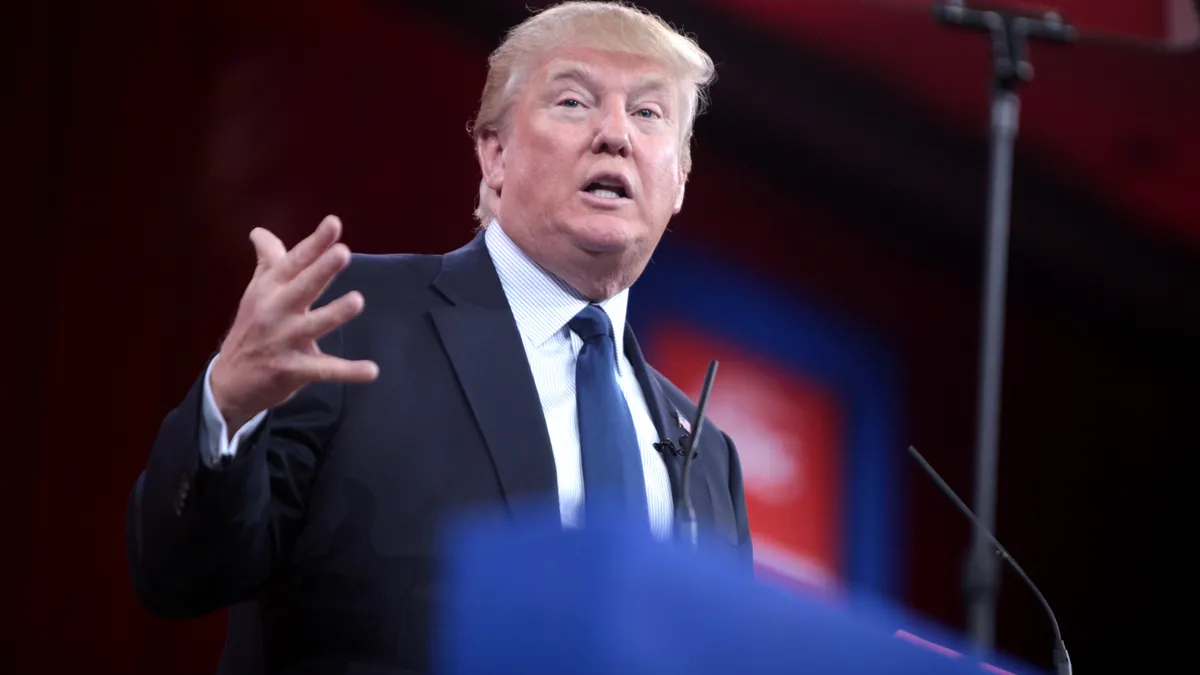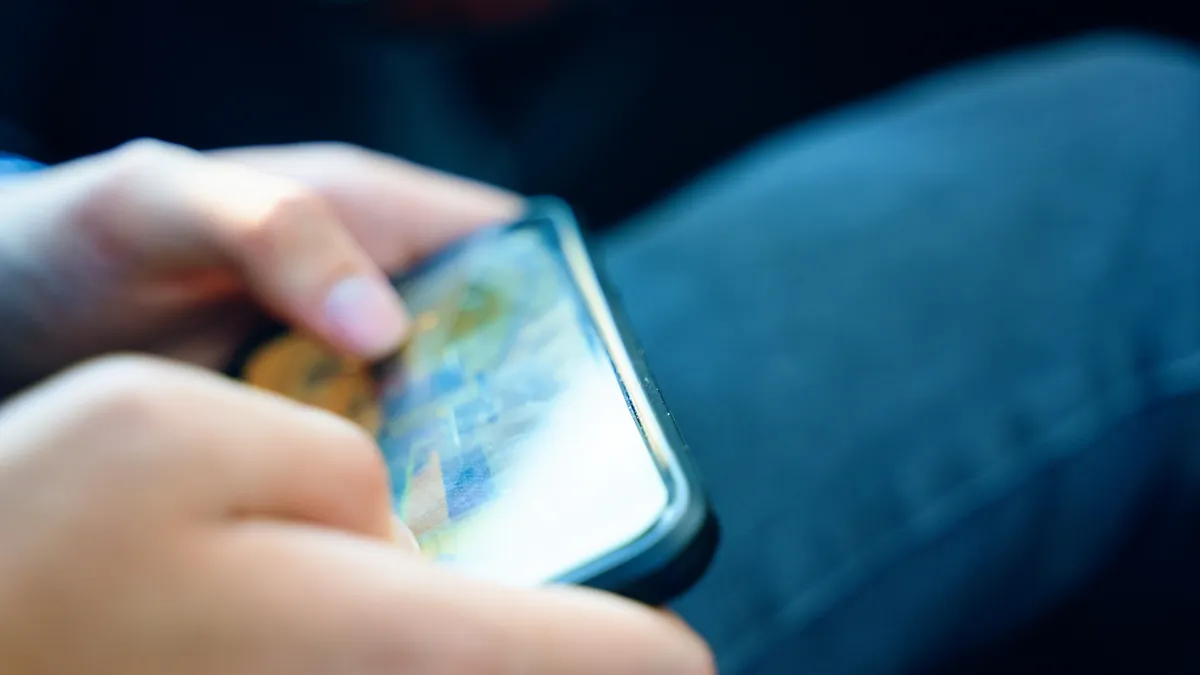UPDATE: Sept. 18, 2020: This story has been updated to include comments from Evan Horowitz, CEO of agency Movers+Shakers.
Brief:
- The U.S. Department of Commerce on Friday morning issued an order that will ban new downloads and software updates to ByteDance's TikTok app starting Sunday, Sept. 20. New downloads are also banned for Tencent's WeChat, which also won't be able to provide any service to existing users as of the same date. A similarly wide ban to all TikTok U.S. users is extended until Nov. 12.
- In an interview with Fox Business, Commerce Secretary Wilbur Ross said that TikTok will otherwise "stay intact until Nov. 12," per Reuters. That date is the formal deadline President Donald Trump has given for ByteDance to divest TikTok's U.S. operations and any data on users in the nation.
- Both TikTok and WeChat have come under increasing pressure from the Trump administration for their ties to China, which the president views as a national-security threat. Even if it isn't fully banned yet, TikTok becoming unable to grow its audience would hinder appeal to both brands and creators.
Insight:
Crucially, President Trump could rescind the order from the Commerce Department if ByteDance secures a deal around TikTok's operations in the U.S. before Sunday, as noted by Reuters. The alternative spells big trouble not only for TikTok, but also the brands and creators that rely on the social video-sharing platform.
If the order is allowed to take effect, major U.S. app stores, including Google Play and the Apple App Store, will no longer be able to offer downloads of the mobile app or provide the software updates that fix bugs and keep its features functional. TikTok's audience growth, which has been explosive in recent months and is a key part of its pitch to advertisers, could ultimately be stonewalled in a critical market, while its user experience will likely depreciate.
Taken together, those factors could ward off brands that are primarily interested in courting TikTok's young-skewing user base, and that also value advertising platforms that can ensure a degree of long-term stability and consistency. Similarly, content creators — in many ways TikTok's secret sauce — depend on being able to attract new followers to grow their reach and make their accounts more appealing for sponsorship deals. If creators lack an incentive to produce new videos for TikTok, the app could stagnate, since its engagement is driven by a recommendation algorithm centered on user-generated content.
That's not to say that TikTok's relevance would be unseated overnight, and marketers have continued to invest in the platform despite weeks of volatility. The app retains a dedicated installed audience — it recently surpassed 100 million users in the U.S., and has been downloaded over 2 billion times globally — that would stick around even in the event of a ban on new downloads.
"All of our active campaigns have continued to move forward full speed ahead over the past months," Evan Horowitz, CEO of Movers+Shakers, a creative agency that has produced TikTok campaigns for brands like e.l.f. Cosmetics and NYX, said in emailed comments. "The brands that are active on TikTok know how valuable it is to their success. Some brands who haven't yet started on the app are still waiting to see how everything plays out."
As recent developments have shown, nothing is certain about TikTok's future barring the lock-in of a new arrangement for its U.S. business. Oracle earlier this week announced it reached an agreement to become the "trusted technology partner" of the app in the U.S., a deal that is under review by government officials and awaiting Trump's sign-off.
CNBC on Thursday reported Walmart — which previously teamed with Microsoft on a now-rejected bid to outright acquire TikTok's operations — is expected to partner with Oracle on the deal. Additionally, ByteDance intends to make an initial public offering for TikTok on a U.S. stock exchange to quell security concerns from regulators, CNBC said, citing people familiar with the matter.
If the Trump administration gives the Oracle tie-up the okay in the next couple of days, then it's possible that TikTok will continue working as-is in the near term. A previous executive order from the Trump administration threatened to ban U.S. entities from conducting transactions with WeChat and TikTok starting Sept. 20, a directive TikTok has sued the administration over, alleging it did not provide ample evidence that the app poses a national-security threat. Commerce officials affirmed that TikTok has a longer runway to continue technical transactions until Nov. 12 as it seeks a buyer, Reuters reported Friday. That deadline is after the presidential election but still during Trump's term in office, making it unclear if the deal will still be a priority post-election.
The particulars of Oracle's workings with TikTok, including whether the app's majority ownership will end up being based in the U.S. or China, continue to be ironed out, according to media reports. Though details remain sketchy, the arrangement does not appear to be an outright sale of the business, which is something President Trump demanded when he first issued plans to ban the app.
While WeChat has not been under as harsh a spotlight as TikTok, the order issued Friday appears to prohibit provisions that would keep the app functioning beyond Sunday, according to TechCrunch, a blow for people who rely on WeChat as a means of staying connected with friends and relatives abroad. However, companies will be able to continue to use WeChat normally outside of the states, Reuters said — a linchpin issue for multinational businesses that leverage the service's embedded e-commerce programs, called "mini-apps," to sell to consumers in markets like China.























